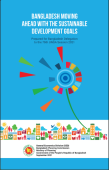
This booklet gives a broad picture of the assessment of progress made under each Sustainable Development Goal (SDG) in Bangladesh. It analyses the importance of multi-stakeholder partnerships for achieving SDGs, means of SDGs implementation, the impact of the COVID-19 pandemic on SDGs implementation, and SDGs localization. Nonetheless, this document does not describe all the SDG indicators. To ensure the succinctness of the report, it only covers those indicators for which the latest data/ information is available.
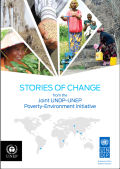
This publication brings together selected Stories of Change to catalyze and motivate governments, stakeholders, and the international development community at large to invest in, and support, poverty-environment mainstreaming across the globe as one element of the transition to an inclusive, green economy.
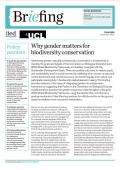
This briefing calls on policymakers to prioritize gender-responsive implementation of the CBD's Global Biodiversity Framework, using the Gender Plan of Action as a mechanism, and to integrate gender into budgets.
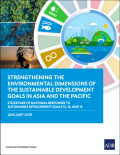
This report presents the results and findings of the technical assistance project’s regional stocktake on national responses to SDGs 12, 14, and 15 in Bangladesh, Bhutan, Cambodia, Fiji, Indonesia, Kazakhstan, the Lao People’s Democratic Republic, Mongolia, Nepal, the Philippines, Samoa, Sri Lanka, Timor-Leste, and Viet Nam. In addition to this report, the project has also prepared jointly with UNDP–UNEP Poverty-Environment Action, Strengthening the Environmental Dimensions of the SDGs in Asia and the Pacific: Tool Compendium, an inventory of tools for policymakers with special emphasis on SDGs 12, 14, and 15.
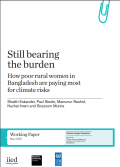
This study assesses the percentage of climate expenditure as a share of household income in climate-vulnerable regions of Bangladesh.
